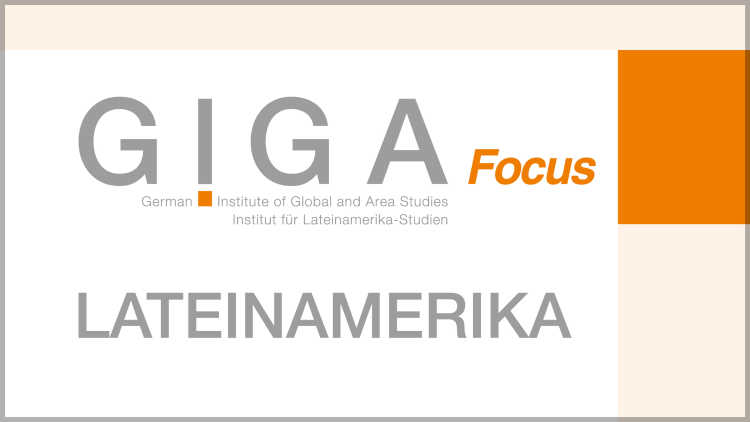- Home
- Publications
- GIGA Focus
- Bolivien hat gewählt: Absolute Macht für Präsident Morales?
GIGA Focus Latin America
Bolivien hat gewählt: Absolute Macht für Präsident Morales?
Number 4 | 2010 | ISSN: 1862-3573
Boliviens Präsident Evo Morales erzielte bei den Parlaments- und Präsidentschaftswahlen im Dezember 2009 mit 64 Prozent der Stimmen einen klaren Wahlsieg und trat damit am 22. Januar 2010 seine zweite Amtszeit an. Morales kann seitdem mit der regierenden Movimiento al Socialismo (MAS, "Bewegung zum Sozialismus") auf eine Zweidrittelmehrheit im Senat und eine fast absolute Mehrheit in der Abgeordnetenkammer zählen. Anlässlich der jüngsten Provinz- und Kommunalwahlen vom 4. April 2010 hatte Morales auf eine weitere Konsolidierung seiner Macht gesetzt. Tatsächlich gewann die MAS in sechs von neun Provinzen und in 231von 337 Kommunen, dabei verlor sie allerdings in sieben der zehn politisch bedeutendsten Kommunen.
Analyse Die Machtverteilung zwischen der Regierungspartei MAS und den verschiedenen oppositionellen Gruppen wurde durch die Wahlen im April 2010 komplexer:
Die MAS ist einerseits auf dem Weg, ihre Macht weiter zu konsolidieren. Auf nationaler Ebene ist die gegenwärtige Opposition politisch sehr geschwächt.
Auf kommunaler Ebene haben Oppositionsgruppen andererseits nunmehr eine stärkere Position gegenüber der MAS.
Die eigene Politik hat dazu geführt, dass Parteimitglieder aus den Reihen der Intellektuellen sowie Angehörige der Mittelschicht keine überzeugten MAS-Anhänger mehr sind. Auch ist die MAS bei den jüngsten Provinzund Kommunalwahlen ohne ihren stärksten Koalitionspartner, die Movimiento sin Miedo (MSM, "Bewegung ohne Angst"), angetreten.
Footnotes
Regional Institutes
Research Programmes
How to cite this article
Buitrago Bascopé, Miguel A. Buitrago (2010), Bolivien hat gewählt: Absolute Macht für Präsident Morales?, GIGA Focus Latin America, 4, Hamburg: German Institute for Global and Area Studies (GIGA), http://nbn-resolving.de/urn:nbn:de:0168-ssoar-274395
Imprint
The GIGA Focus is an Open Access publication and can be read on the Internet and downloaded free of charge at www.giga-hamburg.de/en/publications/giga-focus. According to the conditions of the Creative-Commons license Attribution-No Derivative Works 3.0, this publication may be freely duplicated, circulated, and made accessible to the public. The particular conditions include the correct indication of the initial publication as GIGA Focus and no changes in or abbreviation of texts.
The German Institute for Global and Area Studies (GIGA) – Leibniz-Institut für Globale und Regionale Studien in Hamburg publishes the Focus series on Africa, Asia, Latin America, the Middle East and global issues. The GIGA Focus is edited and published by the GIGA. The views and opinions expressed are solely those of the authors and do not necessarily reflect those of the institute. Authors alone are responsible for the content of their articles. GIGA and the authors cannot be held liable for any errors and omissions, or for any consequences arising from the use of the information provided.


